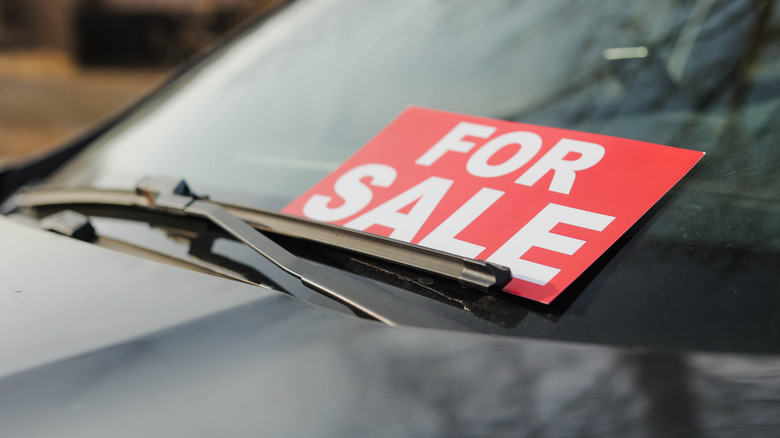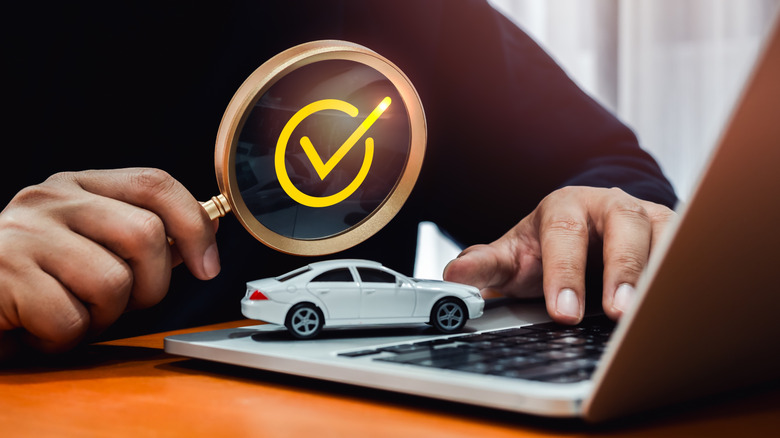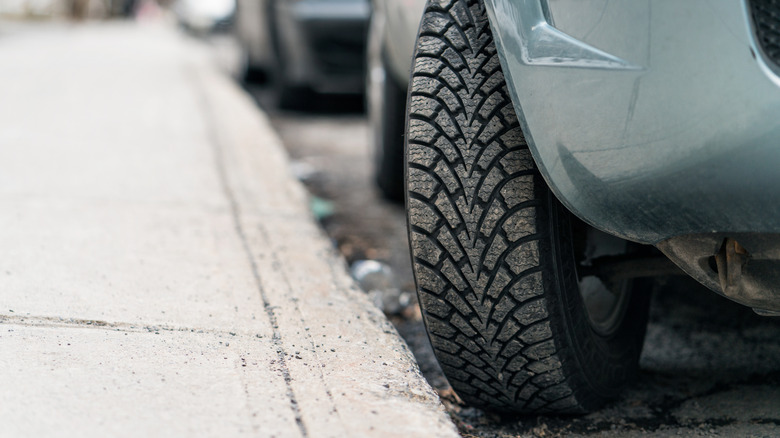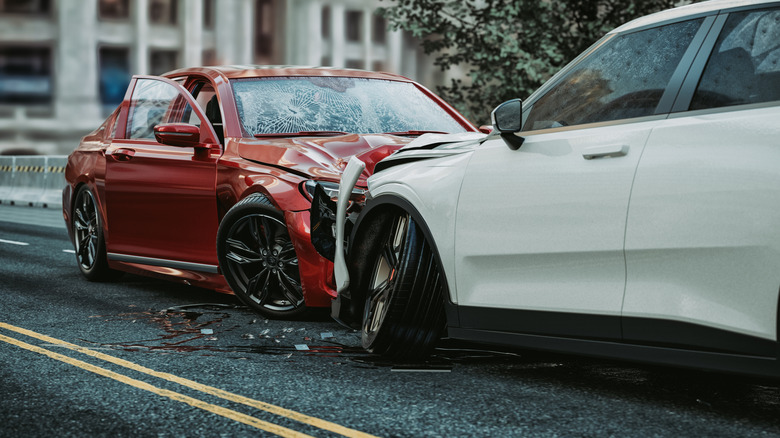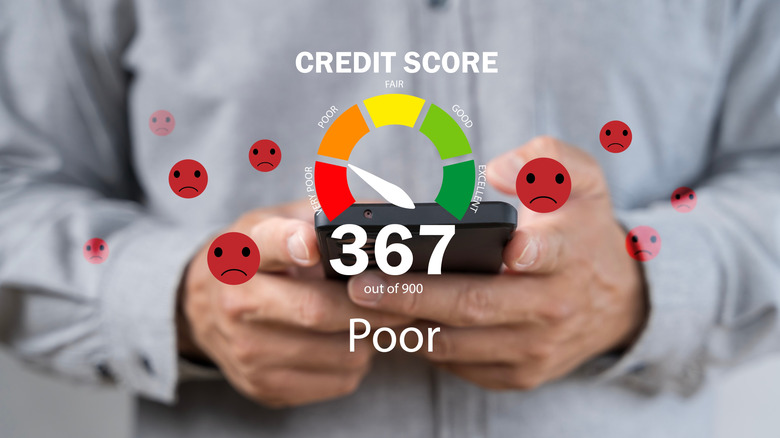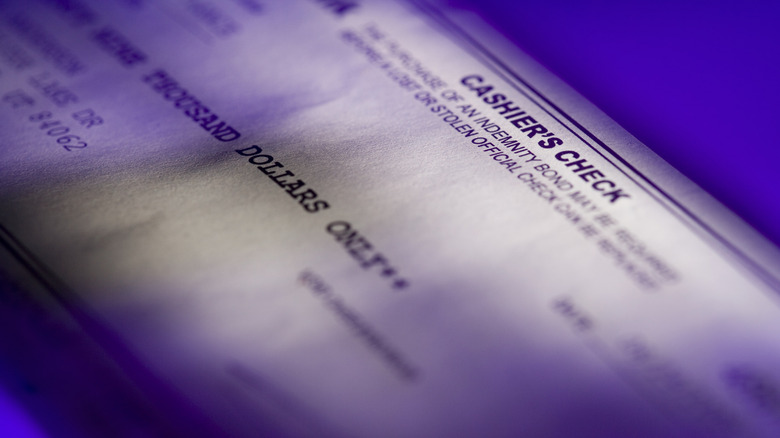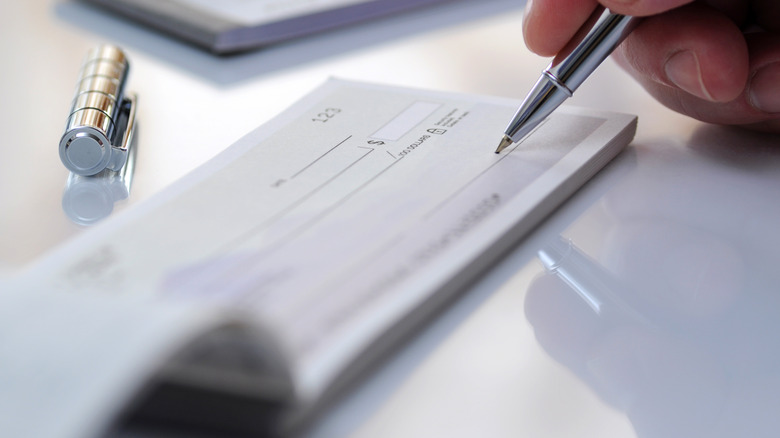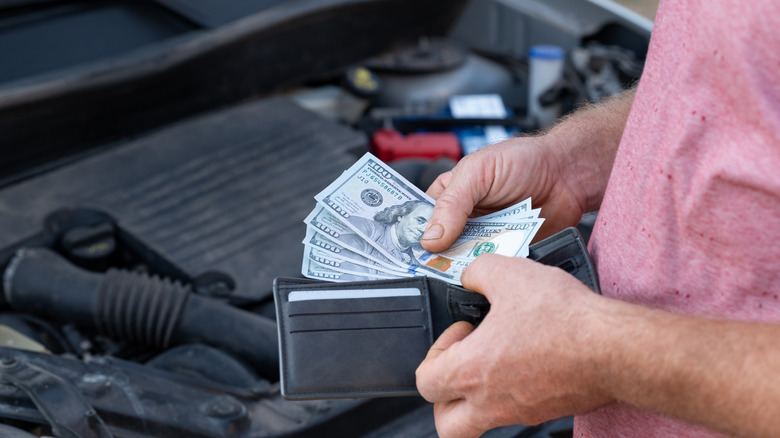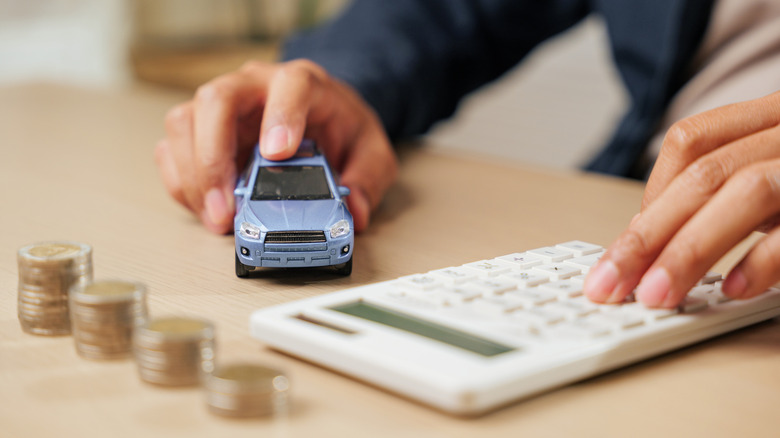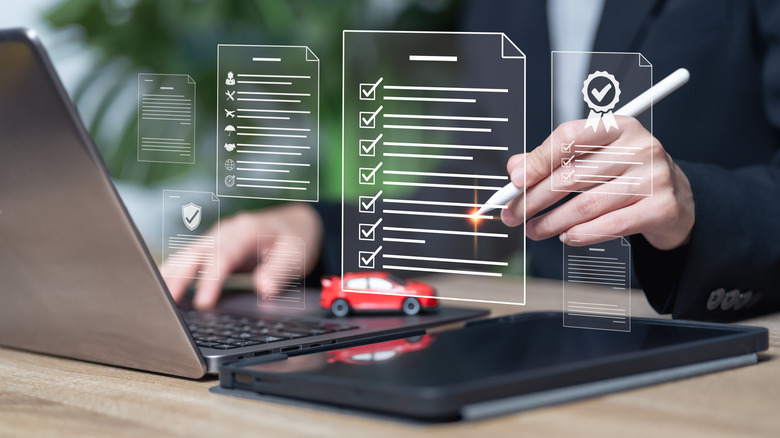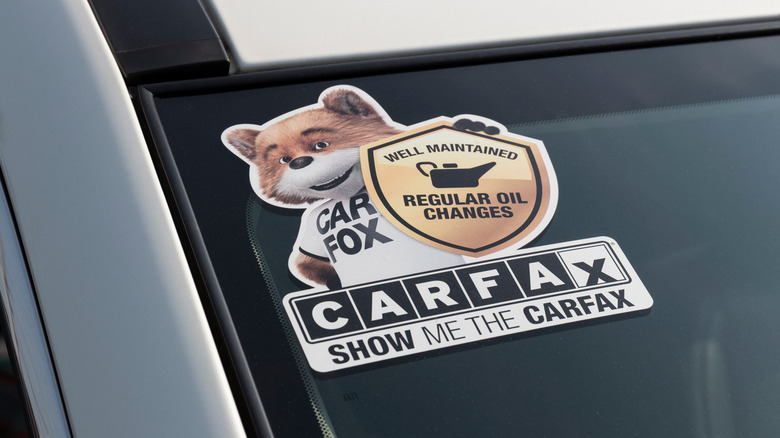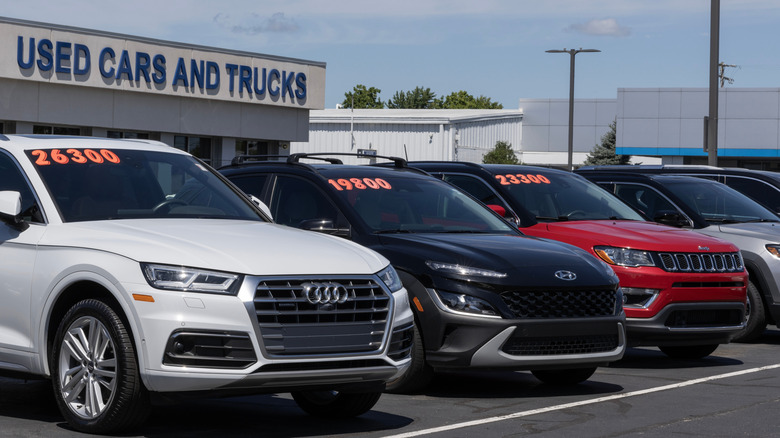10 Of The Worst Car Scams To Avoid When Buying Or Selling A Vehicle
There are plenty of things you need to look out for when buying a used car or a new car, or when selling your old vehicle. This includes your standard mechanic-approved tips for buying a used car, like checking for rust or signs of water leaks, as well as the less common but still very important advice of staying aware of the biggest scams you may encounter when buying or selling a vehicle.
We'll dive into specifics on 10 of the worst car scams to avoid when buying or selling a vehicle, but before that, there's one piece of advice that should help guide you even if you forget the minute details of these scams: Trust your gut. If something doesn't feel right or sounds too good to be true, listen to that feeling. The right buyer or seller will come along eventually, so you should never rush into such a big financial decision.
If you need help deciding which used car model to buy, check out these ridiculously cheap to maintain used cars or these reliable used car models that cost under $15,000 on average.
Buying sight unseen
Unless you're purchasing a vehicle from someone you know and trust who lives a long distance from you, it's never a smart idea to buy a vehicle without actually seeing it in person first. Committing to a vehicle sight unseen is one of the biggest mistakes you can make when buying a used car, and it's a very easy scam for unscrupulous people to pull off.
A seller can convince a potential buyer of a vehicle's overall state with photos or videos, which can even potentially be time-stamped for extra credibility. Then, the seller will often tell the buyer that they need a deposit to hold the car, or possibly even the full asking amount of the car, in order to hold it. When the buyer arrives to pick up the car, they're in for a rude awakening — there's no car, the seller won't answer any messages, and the buyer's out the cash they sent over.
This scam could also include tricking a buyer into purchasing a car that looks okay in photos and videos but has major mechanical issues that can't be repaired or will cost thousands to fix.
Avoiding this scam is simple. Always check out vehicles you're potentially buying in person, and always insist on a test drive.
Curbstoning
Curbstoning goes a step further than a simple scam because it's illegal. According to Capital One, "Curbstoning is when someone purchases a car and then sells it for more than it's worth, all without a dealer's license." If you're planning to buy a used car from a dealership, this isn't a scam you have to worry about. But if you plan on going the private seller route, it's something you should be aware of.
In this scam, the seller is aware of some mechanical issues, a salvage title, or some other major problem with the vehicle, and sells it to the buyer at a normal price regardless. Often, the seller will act as the owner of the vehicle, despite having purchased it (or even found it) from someone else at a much lower price. When the seller acts as the owner, they're able to bypass local and state regulations, like lemon laws.
It's reasonable to ask the seller to see the vehicle's title. If you notice the title isn't in the seller's name, that's a big red flag. It's also a good idea to check a vehicle's history before you buy it, and you can do this quickly and for a small fee through services like Carfax. If you have the extra money, getting a pre-purchase inspection for around $100 to $200 is smart as well. Or, if you know someone who's good with cars, bring them along to view the vehicle with you.
Title washing
Title washing is illegal, but that won't stop determined criminals from using this technique to scam buyers. According to Carfax, title washing refers to "the act of removing information from a car title by illegal or fraudulent means." This could include wiping loan information, removing any evidence that the vehicle was damaged or stolen, or hiding the vehicle's true mileage.
Scammers use several methods to illegally alter a car's title. Sometimes, the original title document is altered, which can be difficult to spot for first-time car buyers. Then, it's possible that a seller could reapply for a new title for a car and neglect to report any past damage or unsavory history for the vehicle.
Unlike some of the other common scams you can encounter when buying a used car, title washing isn't just frowned upon — it's illegal. If you ever find yourself mixed up in a title washing scam, you can contact local law enforcement, your attorney general, or your department of consumer affairs.
To avoid title washing, the best advice is not to base your buying decision on a vehicle's title alone. Get the car's VIN from the seller and pay the small upfront fee to run a vehicle history report yourself. It's also common for sellers to use the term "as-is" to sell vehicles like this, so it's smart to avoid listings with this terminology.
Low credit score scam
The risk of being scammed when buying a used car isn't simply reserved for private sellers. If you decide to go through a dealership to buy a used car, and you haven't thoroughly vetted the dealership to ensure it's reputable, you could end up paying way more than you need to.
This scam goes beyond simply overcharging you upfront for a vehicle, which some dealerships are definitely guilty of. To avoid this simpler scam, it's important to be aware of the market value for vehicles you're interested in prior to heading to the dealership. Kelley Blue Book is a great free resource for figuring this out.
The more troublesome scam to be concerned with when potentially buying a used car from a dealership is the low credit score scam, which involves a dealership convincing the buyer that their credit score is so low that they'll need to charge a higher interest rate in order to make a deal. To avoid this, make sure you know what your credit score is going into the dealership and what the going interest rate is based on that credit score.
For further education, here's a deep dive into what APR is for a car loan and how you can score a lower rate.
Fake cashier's checks
Cashier's checks and money orders have long since been a good way to prove you have a certain amount of funds in your bank account without needing to carry around a dangerous amount of cash with you. However, with better technology, it's easier than ever for scammers to produce counterfeit cashier's checks.
The Federal Deposit Insurance Corporation (FDIC) specifically notes that improved printing technologies and advanced graphics, mixed with criminals "[relying] on their victim's sense of 'security' provided by cashier's checks," account for the increase in these scams when selling a used car.
The smartest way to avoid this scam is to not accept any cashier's checks or money orders as a form of payment for your used car. However, if you feel comfortable accepting one with extra verification, look up the bank listed on the check and find the customer service number (don't call any number on the check, as that could be part of the scam) to confirm its authenticity.
Personal checks
People still have and use personal checks on a regular basis, but it's not wise to accept one as payment for a used car. To know whether or not a check will or won't clear in your bank account, you have to wait. It's possible a scammer may forge a check from an account that's not theirs, write a check knowing it'll bounce because the funds aren't in their account, or plan to cancel the check after it's been written and before it can clear in your account.
Generally speaking, the potential buyer giving you a personal check will expect a trade for your used vehicle right away. After all, what's to stop you, as the seller, from cashing the check and then selling the vehicle to someone else or moving the vehicle so the seller doesn't know where it is anymore?
Because of this necessary waiting period for a check to clear in your bank account, it's always better to accept only cash or another secure method of payment you can verify immediately before handing over your vehicle.
Overpayment scam
The overpayment scam is pretty easy to spot because it sounds too good to be true. In this scam, a malicious buyer will offer to pay you more than the asking price because they're supposedly very interested in the vehicle and don't want anyone else to snag it. Then, they'll claim that they've sent you the money and accidentally sent too much and ask you to refund the difference.
The catch here is that they never actually sent you the first payment to begin with. They'll potentially say something like "It's a business account, so it may not show up right away," and use that as an excuse for why you don't see the money in your account yet. However, any electronic payment system, like Zelle or Venmo, will deliver the money almost instantly. So if you don't see the money in your account, don't give your vehicle away, and don't send any money back as a refund.
This scam can also involve a fraudulent cashier's check or money order that looks like it has more than the amount you're asking for your used vehicle. The scammer may say they got out a certain amount just in case, and ask you to send them the difference. Then, you'll find out later that the cashier's check or money order is fake and you'll be out the amount you gave the seller (and your vehicle).
Promise of future payments
This scam is one of the most obvious you may come across when trying to sell your old vehicle, but it warrants a mention nonetheless. If someone tries to work out some kind of payment plan with you, you should never entertain the idea.
It doesn't matter how much the potential buyer is offering up front, how soon they say they'll pay the full amount to you, or what excuse they have for why the situation is necessary. A scammer could claim they're in college and low on funds, just lost their own vehicle in a fire or another accident, or something else that's meant to tug at your heartstrings. Then, after that first payment, you'll likely never hear from the buyer again or get any of the initially promised funds.
There is a major exception to this scam, and that's if you know the buyer. If your cousin or close friend wants to buy your vehicle over multiple payments and you know them to be trustworthy, this is obviously a much safer scenario. Still, you should always err on the side of caution and rely on your own judgement.
Phantom listings
Fake listings, or phantom listings, exist solely to lure personal information out of interested buyers. Typically, these listings will advertise a vehicle for sale at an unbelievably great price in the hopes of getting a ton of potential buyers reaching out.
When a buyer contacts the seller, the seller will use the conversation to steal and maliciously use important personal information under the guise of selling a vehicle. This could be your full name, phone number, address, current vehicle information, birthday, and more, depending on how scam-savvy the buyer is. If you see a vehicle listed for sale that's way below its market value, chances are pretty high it's a phantom listing.
Similarly, if you're selling an old vehicle, you can be at risk of fake buyers trying to scam personal information out of you. Faux interested buyers will reach out and act like they're interested in purchasing your vehicle, but ask probing questions to pull private info out of you. Many fake buyers use the story of a family member coming to pick up the item instead of them, sometimes from out of town, so be wary of any buyers with this frequently used scam story.
Car report scams
One of the more recent scams you may run into when trying to sell a used car or even buy one involves car reports and is perhaps more of a hustle than a scam. Providing an official car report from a reputable company like Carfax is a great perk sellers can offer to potential buyers that can help instill confidence and help the vehicle sell faster.
However, if buyers contact you as the seller and request that you pull specific car reports from linked websites, don't do it. One Reddit thread mentions vehicleownerinfo[.]com as a frequent offender, while another thread pinpoints digitalvinautomation[.]com as a sketchy request that the buyer claims is "much better and detailed than Carfax."
First, if a buyer truly wants a specific car report, it's reasonable to request that they pay for it themselves. Second, many of these specific websites scammers are linking and requesting car reports that tie back into their own personal finances, meaning they're often pocketing any money spent on these fake car reports. Plus, they'll often gain important personal information about you and your vehicle through these reports that they can then sell or otherwise use maliciously.
Methodology
To compile this list of the worst car scams to avoid when buying or selling a vehicle, we looked at personal reflections on public forums and official resources from trusted brands in the finance or auto industry, like Carfax, Capital One, and the FDIC, just to name a few.
These certainly aren't all the scams you may encounter when buying or selling a used vehicle, but they are the most common right now. However, new scams frequently pop up as old scams become common and technology improves, so the best advice you can give when shopping for or selling a vehicle is to trust your instincts. If something feels off, it likely is.
